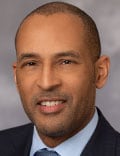A proposal to close the National Eye Institute (NEI) and consolidate it with two other arms of the US National Institutes of Health (NIH) has brought together leaders from three vision research organizations to rail against the proposal.
Officials at the American Academy of Ophthalmology, the American Academy of Optometry, and The Association for Research in Vision and Ophthalmology (ARVO) published a joint letter in the journal Nature to voice their opposition to the suggestion, floated earlier this year by Congress.
“Maintaining the NEI as an independent institute is crucial to achieving its mission of eliminating vision loss and improving quality of life through research,” wrote Stephen McLeod, MD; Susan Cotter, OD, MS; and Srinivas Sadda, MD. “Consolidation with other programs will dilute and diminish this effort.” The three are CEO of the Academy of Ophthalmology and presidents of the American Academy of Optometry and ARVO, respectively.
House Proposal to Reform NIH
The House Committee on Energy and Commerce issued a proposal in June to reduce the number of NIH institutes and centers from its present complement of 27 to 15. The plan proposes consolidating the NEI, along with the National Institute of Dental and Craniofacial Research and the National Institute of Neurological Disorders and Stroke, into the National Institute on Neuroscience and Brain Research.
The new institute would have a budget of $4 billion, which would be about $42 million more than what the three separate entities now receive, the report stated. The NEI itself has a budget this year of $896.6 million out of a total NIH budget of $48.2 billion. The proposal calls for holding total NIH funding steady for the next fiscal year.
The House report on NIH reform cited increasing budgetary restraints, along with a need for funding transparency and concerns about waste, fraud, and abuse, as reasons for reforming the NIH.
In a statement issued when the report was released, Cathy McMorris Rodgers (R-Washington), chair of the House Committee on Energy and Commerce, said the committee supports the NIH. “But historical support for what an agency should or could be cannot prevent us from seeking to build upon past lessons or correct areas that have fallen short,” she added.
Eye Health Organizations Respond
In August, the American Academy of Ophthalmology told its members it had “outlined strong opposition” to the proposal. The Doheny Eye Institute and UCLA Stein Eye Institute, where ARVO President Sadda is director of artificial intelligence and imaging research, issued a call for action asking people to send letters to the committee opposing the consolidation. The template read, in part:

“The NEI has been instrumental in supporting the important vision research undertaken by scientists across the nation, contributing to breakthroughs and eye care that is helping to conserve, improve, and restore vision to countless people worldwide. If the NEI were to merge with neuroscience, brain research, dental and craniofacial research, and neurological disorders and stroke, the many scientists who are dedicated to researching eye disease and impairment would be forced to compete for funding and attention.
I am deeply concerned that this merger will result in decreased support and funding for not only vision care and research but also each of the subspecialties that will be merged together. Furthermore, it appears that the concept of vision research has been dropped from the name of the new Institute entirely, perhaps signaling that focus and spending on this important part of public health will be deprioritized.”
Ophthalmology and optometry often find themselves at odds about the scope of practice, such as the right to perform laser procedures or minor eye surgery, in states where those issues are up for debate.
Earlier this year, the Academy of Ophthalmology endorsed efforts to successfully block bills in Minnesota, Missouri, and New Hampshire that would have expanded optometric scope of practice. The latter bill would have allowed optometrists to perform eye surgery, according to the American Academy of Ophthalmology’s website. Legislation to allow optometrists to perform laser procedures failed in California, Kansas, and Utah, according to Review of Optometry.

McLeod, of the American Academy of Ophthalmology, explained why it was important the three organizations came together to voice their opposition to the dissolution of the NEI.
“The research supported by the NEI spans the full range of vision science from basic cell and molecular biology through structural biology, vision neuroscience, psychophysics, all the way to disease diagnosis and intervention at individual and population levels,” McLeod told Medscape Medical News. “Thus, the community that is engaged in this research — and who are supported by NEI funding — is similarly broad, encompassing vision scientists, ophthalmologists, optometrists, and many others. We felt that it was important to express the voice of the entire research community in this communication, hence a joint statement from three organizations.”
Cotter stressed the importance of advocating for vision research.

“By uniting, optometry and ophthalmology amplify their voice, emphasizing that advancements in the field will be hindered without dedicated vision research,” she told Medscape Medical News. “Such a slowdown would impede the development of new technologies and treatments essential for improving vision and eye health outcomes. Both professions would face challenges in maintaining innovation and excellence in eye care without the sustained focus and resources provided by the NEI, which could be diluted if NEI were consolidated into a larger institute.”
Sadda, whose organization represents about 12,000 vision scientists worldwide and funds research, said eye research could lose prominence in the reorganization.
“If the NEI is absorbed into a larger NIH institute, vision science research will no longer be prioritized, and research proposals targeting eye problems will be less likely to be funded,” he said. “This impacts retina specialists very directly. A prime example is the DRCR Retina Network [formerly the Diabetic Retinopathy Clinical Research Network], which many retina specialists around the country participate in and has led to landmark discoveries that have changed clinical practice and management of retinal disease. If the NEI is dissolved, programs such as the DRCR Retina Network may disappear as well.”
The joint correspondence noted that tens of millions of people self-identify as visually impaired or blind, and the Centers for Disease Control and Prevention predicts significant increases in the prevalence of eye diseases such as cataracts, glaucoma, diabetic retinopathy, and age-related macular degeneration.
NEI research also has contributed to a number of scientific breakthroughs, according to the authors, including the development of anti–vascular endothelial growth factor drugs to treat retinal diseases, a remote artificial intelligence–driven device to monitor visual function, and voretigene neparvovec (Luxturna) — a treatment for inherited retinal disease and the first gene therapy to be approved by the US Food and Drug Administration to treat an inherited disorder.
The House committee set a due date of August 16 for comment on the proposal, but the committee’s press office had not responded to a request for an update by press time.
McLeod, Cotter, and Sadda did not disclose any financial relationships other than their organization roles.
No comments:
Post a Comment
Note: Only a member of this blog may post a comment.